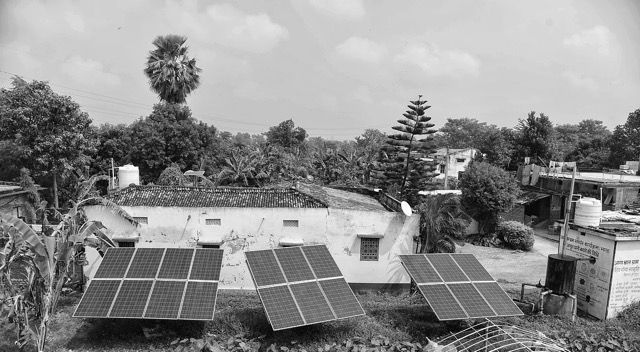Sunaina Devi’s Farm Revolution
- Tanmoy Bhaduri

- Apr 12, 2024
- 2 min read
Updated: Jul 10, 2025
Home alone after sons migrate, farmer taps solar to tackle water scarcity on her farm

Pictures & Text:
Tanmoy Bhaduri


Sunaina Devi, 52, started working on the farm as a child with her mother and then with her mother-in-law when she got married at 16. Devi’s husband would migrate to Kolkata, returning only for three months during the harvest season. She inherited 1.85 acres of land in Harpur village in Muzaffarpur in Bihar after he died over a decade ago. With farm incomes increasingly unreliable owing to rising water scarcity, her sons too migrated to Bengaluru and Delhi, like hundreds of other smallholder farmers. A 2020 study by the Indian Institute of Population Sciences found there is migration from 50 percent of all Bihar households.

This migration leaves many women like Devi behind in villages, where they shoulder responsibilities such as raising children, collecting fodder for livestock, and cultivating pulses and vegetables with limited water resources. “My village has traditionally depended on rainwater. There is less rain in some years and heavy in others, resulting in floods and waterlogging for three months, which leads to loss of crops,” she said. As a member of the Shiv Ganga Samuha Sichai Samity self-help group (SHG), one of many in Muzaffarpur and Samastipur, Devi is at the forefront to address this water crisis on farms.

The installation of solar irrigation pumps was a game changer. “It helped with crop diversification. We now grow vegetables like cauliflower, pointed gourd, coriander, eggplant, and bitter gourd, significantly increasing our family's income. This has become a valuable source of supplementary income for us,” she told The Migration Story.

The self-help group dipped into their savings and invested Rs 150,000 in 2016 to bore a pump and install solar panels. They now had a reliable irrigation source for their farms and also supplied water to 100 more farmers at Rs 100 per hour. This helped the self-help group generate an annual income of Rs 120,000. The Bihar Rural Livelihoods Promotion Society (JEEViKA), along with the Aga Khan Rural Support Programme India, aims to implement this model with 100 such women SHGs.

Devi’s SHG ensures each member of the group is responsible for operating the pump and handling the distribution, once considered a man’s job. It has given women newfound confidence, or himmat as Devi puts it.
Tanmoy Bhaduri is a Delhi-based development communication specialist





Comments